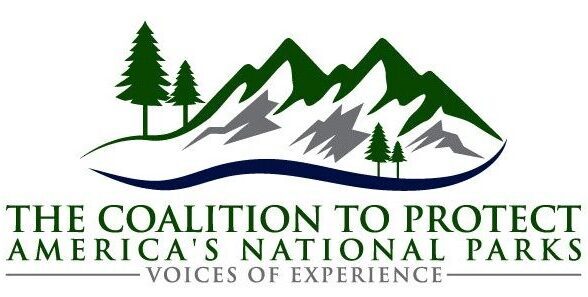
December 17, 2021
Mr. Chuck Sams, Director
National Park Service
1849 C Street NW
Washington, DC 20240
Dear Director Sams:
Congratulations on your confirmation as the 19th director of the National Park Service – arguably our nation’s most popular federal agency! You join a long and honored line of directors of the National Park Service – an agency established to manage our national parks, which American author Wallace Stegner once called, “America’s Best Idea.”
At the beginning of the first century of the National Park Service, Secretary of the Interior Franklin K. Lane sent a letter (referred to as the “Lane letter”) to the very first National Park Service Director Stephen T. Mather that outlined the broad principles by which the nation’s parks would be managed and preserved for future generations. Now, over a century later, as you assume your new duties as the 19th director, you face challenges unimagined by the 18 directors who came before you. We are a different people than we were in 1916. We communicate differently, use technology differently, learn differently, and travel and recreate differently. And we are, simply put, a different people – ethnically and culturally. “Old thinking” may no longer serve the National Park Service in a new century.
Today, the National Park System is comprised of 423 parks protecting 85 million acres of some of our nation’s most spectacular natural and recreational places and most important historic sites. As its new director, you are now responsible for an annual budget of more than $3 billion and a permanent workforce of over 21,000 valued public servants. In 2019 prior to the pandemic, more than 327 million visitors enjoyed our national parks now located in every state and U.S. territory. Importantly, our national park system is more than the sum of spectacular and significant places. In a larger sense, our parks make tangible the great American story – what it means to be an American, where we have been, and where we are going as a people and as a nation. Those who dreamed of a system of American national parks 100 years ago would be astonished at what has come to pass. Today, the National Park Service is, by any measure, a public policy success and a beloved national and international American institution.
As the new and 19th director of the National Park Service at the beginning of the agency’s second century, and in the spirit of the original Lane letter, we encourage you to act boldly, think creatively, and be guided by the following principles:
- Every action must protect and preserve the natural, cultural, and historic sites in the national park system with no action subordinating that mandate. Our national parks must be passed along to future generations unimpaired.
- Public service is an honor. Those who choose it must, in turn, be honored. National Park Service employees are as critical to the success of the National Park Service mission as is protecting the parks themselves.
- Education is a National Park Service mandate. Parks are as much places of research and learning as traditional schools, colleges, and universities. Ensure this mandate includes “untold stories” focusing on the role of all Americans in the creation and protection of our national parks and that efforts are made to engage new and underserved audiences in the educational richness of the national parks.
- Park management decisions must be based on sound, credible, and unimpeachable research, and science – nothing less.
- National parks should not be viewed as islands, but as elements of larger (and oftentimes, interconnected) natural systems and historic patterns and trends representing the great sweep of America’s natural history and heritage.
- National park statutory responsibilities extend beyond park borders in partnering with and providing support to citizens, state, tribal and local governments, colleges and universities, and the private sector to spread the benefits of natural resource conservation, heritage preservation, and recreation across the nation. This responsibility is not a burden, but an opportunity.
- Every citizen must be welcome in parks regardless of race, national origin, gender, or economic circumstances. The cost of visiting our great national parks must not deter access to anyone.
- The national parks were created for the use, health, enjoyment, and benefit of the American public. Park visitors are not a problem to be borne, endured, or resented. The employees of the National Park Service are their public servants.
- Parks are non-partisan. Our increasingly rancorous times should not affect park management and decision-making.
- Financial support of park operations will require ever-increasing reliance on private-sector partnerships. They are an inevitable product of our times. Such support should be free of conflicts of interest, managed honorably, open to public scrutiny, and with donor recognition handled respectfully.
- Rapid evolutions in communication, research, interpretation, protection, and education technology should be embraced and used to the maximum in education programs, and in the protection and management of our parks.
- The national park system has been, and continues to be, a model for many of the world’s park systems. In an ever-smaller world, that interconnectedness must continue. We can learn from other nations as they can from us.
You are embarking on a journey of public service of the highest order. Your responsibilities affect not only some of our nation’s most significant historic sites and natural wonders, but also current and future generations of Americans. As you make decisions as the 19th director of the National Park Service, we hope that you will be ever mindful of that.
In closing, we wish you well and offer our support of your tenure as Director.
Sincerely,

